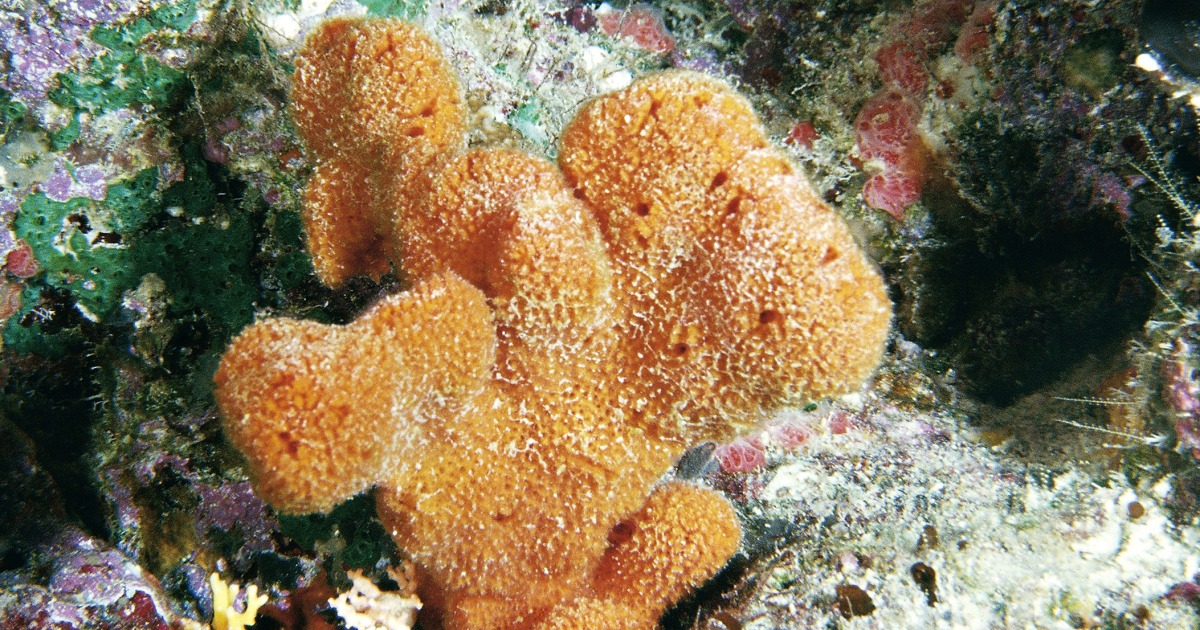
If temperature-tracking sea sponges are to be trusted, climate change has progressed much further than scientists have estimated.
A new study that uses ocean organisms called sclerosponges to measure average global temperature suggests the world has already warmed by about 1.7 degrees C over the past 300 years — at least a half degree Celsius more than the scientific consensus as laid out in United Nations reports.
The finding, published Monday in the journal Nature Climate Change, is startling, but some scientists say the study authors’ conclusions extrapolated too much about global temperature than can be confidently gleaned from sea sponges.
But the study hits on an important question: How much did the world warm when fossil-fuel-powered machinery was chugging but humans were not very organized in measuring temperatures across the world? Scientists say it’s a critical question and something they need to better understand.
The authors of the study say that industrialization before 1900 had a larger impact than scientists previously realized, that its effect has been captured in the skeletons of centuries-old sponges, and that the baseline we’ve been using to talk about climate change politics has been wrong.
“Basically they show the industrial era of warming commenced earlier than we thought, in the 1860s,” Malcolm McCulloch, a lead author of the study who is a professor of geochemistry at The University of Western Australia, said of the sponges. “The big picture is that the global warming clock for emission reductions for minimizing the risk of a dangerous climate have been brought forward by at least a decade.”
Scientists not associated with the study said colleagues have been grappling with how much warming occurred in the early decades after the industrial revolution but before temperature records became more reliable.
“This isn’t the only effort to revisit what we call the preindustrial baseline and to suggest we may be missing increments of warming in the 19th century,” said Kim Cobb, a paleoclimate and oceanography expert at Brown University who is the director of the Institute at Brown for Environment and Society. “This is an area of uncertainty and importance.”
The United Nations Intergovernmental Panel on Climate Change (IPCC) in its most recent assessment of global warming estimated that global surface temperatures have risen by as much as 1.2 degrees C since preindustrial times.
Some scientists think the IPCC’s process — which requires consensus — yields conservative results. Scientists who study Earth’s ice, for example, have raised concerns that the Earth is approaching ice sheet tipping points sooner than expected and that the IPCC’s sea level rise projections are much too low.
Cobb, who did not contribute to the Nature Climate Change study, said it would take heaps of evidence to shift what scientists refer to as the preindustrial baseline, but also that other researchers have found some indications that warming before the 1900s is not accounted for adequately.
“How big this extra increment of warming truly is remains unknown right now. Is it important to study this? Could we be missing some tenths of degree — yes — that seems born out in lines of investigation over the last 6-10 years,” Cobb said.
Sclerosponges are one of many climate proxies scientists use to glean information about past climate conditions. With sclerosponges, layers of skeletal growth serve a similar purpose to marine biologists as rings within a tree serve those working in forests.
Sclerosponges grow slowly and the chemical contents of their skeleton changes as they grow, based on their surrounding temperature. That means scientists can track temperatures by looking at the ratio of strontium and calcium as the creatures steadily grow.
Every half millimeter of growth represents about two years of temperature data, the study says. The creatures can grow and add layers to their skeletons for hundreds of years.
“These are really unique specimens,” McCulloch said. “The reason we’re able to get this unique data is because of the special relationship of these animals to the ambient environment.”
The study’s authors collected sponges from waters at least 100 feet deep off Puerto Rico and near the island of St. Croix, analyzed their skeletons’ chemical composition, charted their findings and compared their data against sea surface temperature measures from 1964 to 2012, finding the trends closely matched.
The sponge skeleton data dates to 1700, which is longer than reliable human records. That gives scientists a longer reference point to evaluate what temperatures were like before fossil fuels became popular. The researchers think it does a better job than other data sets, some which were calculated using 19th-century temperature measurements from ships crossing the sea.
The sponge data shows that temperatures began to rise in the 1860s — before what’s considered by the United Nations’ Intergovernmental Panel on Climate Change.
Some outside researchers, however, said the study could be making too much out of a single type of proxy measure, particularly when the data is tied to only one location on Earth.
“People should be careful in assuming that proxies from one part of the Atlantic are always reflective of the global mean,” Gavin Schmidt, the director of NASA’s Goddard Institute for Space Studies, said in an emailed statement, adding that the author’s claims are probably “overreaching.”
The study authors said they think the waters off Puerto Rico remain relatively consistent and reflect global change as well as anywhere in the world.
The results suggest that humanity has already crossed political guardrails, like world leaders’ goal to limit warming to 1.5 degrees C.
Cobb said more work should be done with sclerosponges to make sure this work is precise. And regardless of how far we’ve already pushed the Earth’s temperatures, humanity must put the brakes on greenhouse gas production.
“Every increment of warming brings with it a whole host of increased climate impacts and worsening climate impacts,” Cobb said. “We are already living with increments of warming that are not safe. … The job hasn’t changed.”
Source: | This article originally belongs to Nbcnews.com









